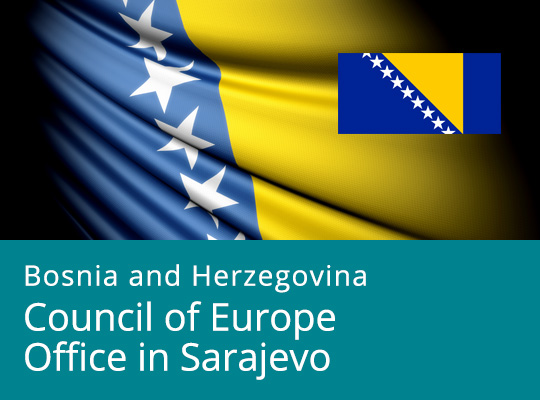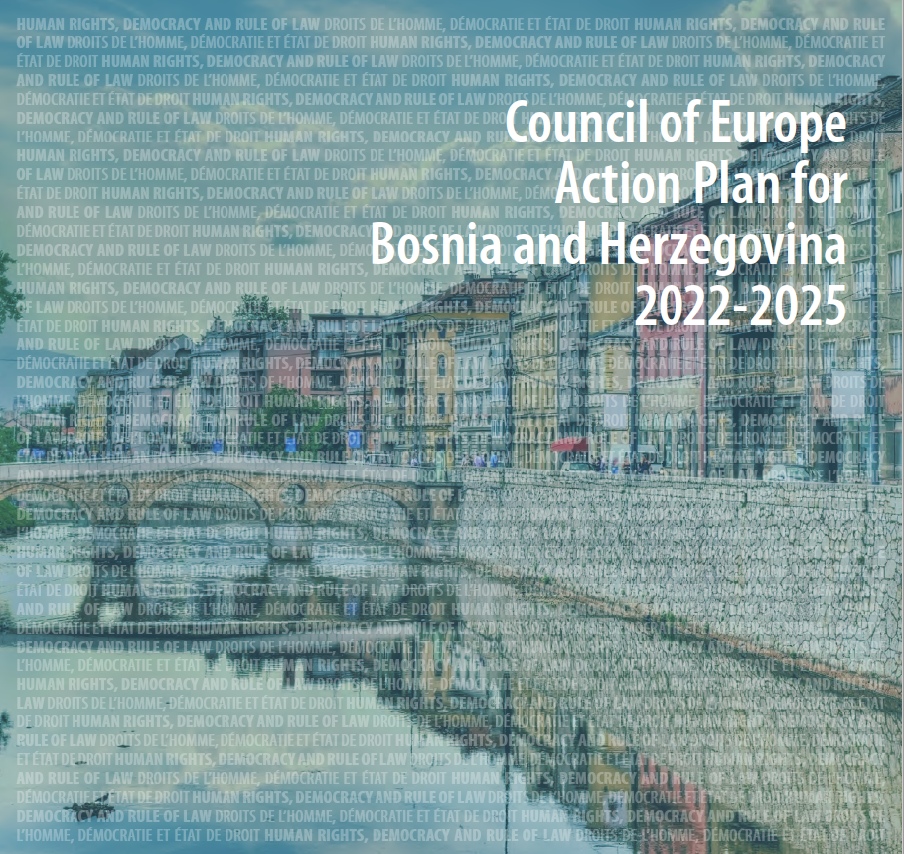The Jewish Cultural, Educational and Humanitarian Society "La Benevolencija", with the support of the European Union and the Council of Europe, and in co-operation with the TPO Foundation, launched a project to educate primary and secondary school students from the area of Centar and Stari Grad municipalities on hate speech, anti-Semitism, Islamophobia, Xenophobia, Jews in Bosnia and Herzegovina, and the Holocaust, as well as all other forms of exclusion of others from the socio-cultural community. Activities, which are part of the joint programme of the European Union and the Council of Europe "Horizontal Facility for the Western Balkans and Turkey 2019-2022", include a wide range of lectures and workshops with the aim of raising awareness of the problems that the society is facing in the fight against racism, xenophobia and discrimination on ethnic grounds.
The project started with the topic "Hate speech and consequences" which was presented to students in two parts by Vladimir Andrle, vice president of JKEHS "La Benevolencija" and Igor Kožemjakin, hazan / pre-prayer of the Sarajevo Synagogue. This topic was presented to the students from Elementary school "Saburina", elementary school "Mula Mustafa Bašeskija", “KŠC Opća - realna gimnazija”, “Bošnjačka gimnazija” and the High School for Textiles and Design. The first part included defining the term, then mapping the "medical history" of hate speech and establishing cause-and-effect relationships with the issue of freedom of expression and its (non) presence in public discourse. The students had the opportunity, together with the lecturers, to reflect on the media space in which some of the multiple worrying implications of hate speech are perpetuated. Thus, the lecturers asked the students questions to which everyone should look for answers to. When the right to freedom of speech is not an adequate right to express an opinion? Where is the line that must not be crossed in the exercise of the right to freedom of expression? How does the law regulate these issues? How to recognise and react to hate speech in the immediate environment?
“I am really glad that this kind of activities draws children's attention to this topic, which is very important nowadays, as well as to lead them to talk and discuss about the same. Hatred stems from fear, and to learn and talk to children how to overcome fear of another, embrace its differences and learn something from it, is the mission of all of us. This is the direction in which we want to direct their growth and maturation, and to form personalities who do not hate, do not despise, but are committed to fight against hatred and its bitter fruits directed against the other", said Emina Mujan, school principal of Elementary school "Mula Mustafa Bašeskija".
Pupils shared their own experiences, and some of them referred to forms of hatred based on intolerance, discrimination against minorities, immigrants and the division into vaccinated and unvaccinated, which is a product of the recent epidemiological situation. The actualisation of the topic was carried out through examples and a workshop based on the principle of philosophy for children. The overall goal of the workshop was to highlight the importance of empathy in the process of accepting and understanding the problems caused by widespread of hate speech in public and private discourse.
”I think this is a new and interesting kind of learning about these topics, especially because we only talked about them in history classes. I am glad that the workshops and talks were interactive because we all got a chance to express our opinions. I think that young people have to work on the fight against discrimination and workshops like this are a good starting point for that“, said after the workshop Una Kovačević, a second grade student of the “KŠC Opća - realna gimnazija”.
The results of lectures and workshops on "Hate speech and consequences" are an indicator of the unenviable situation in the field of knowledge and general information on this topic and tell us about the need for further active engagement in raising awareness of educational institutions about hate speech and its consequences.
Association “La Benevolencija” is a beneficiary of the joint programme of the European Union and the Council of Europe "Horizontal Facility for the Western Balkans and Turkey 2019-2022". The views expressed in this text are the responsibility of the author and do not represent the official views of the European Union and the Council of Europe.




